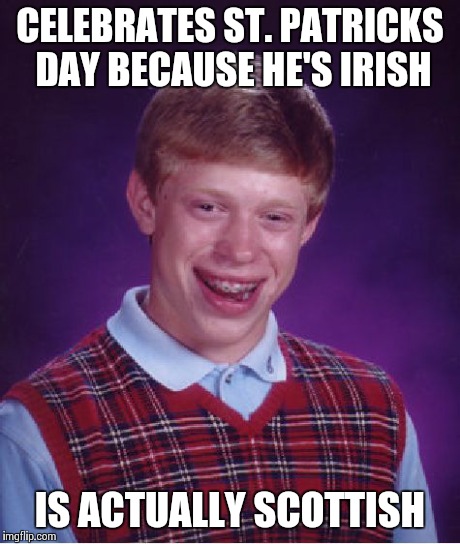Gallery
Photos from events, contest for the best costume, videos from master classes.
 |  |
 | %3BResize%3D(1180)) |
 |  |
 |  |
 |  |
 |  |
St. Patrick’s Day. St. Patrick’s Day tends to be celebrated in an unofficial capacity all over the world but it’s only a recognized public holiday in certain places, one of them being the province of Newfoundland and Labrador. The biggest parade for this day, however, happens in Montreal, Québec. St. Patrick's Day Quiz. St. Patrick's Day in Canada. Though Newfoundland and Labrador is the only province that has a holiday for St. Patrick's Day, Canada has a long history of celebrating St. Patrick's Day, due to the number of immigrants who came to Canada from Ireland in the 19th century. According to the Department of Finance’s official public holiday calendars, St. Patrick’s Day has been an official holiday in Newfoundland and Labrador since the turn of the 20th century. While the rest of Canada does not treat it as an official holiday, many citizens still observe St. Patrick’s Day through celebrations, parades, parties Today, St. Patrick's Day is a day to recognise Irish heritage and celebrated by people of all backgrounds in many parts of the world, such as the United States, Canada, and Australia. Although these are the main overseas populations, St. Patrick's Day is also celebrated in other locations as far-flung from Ireland as Japan, Singapore, and Russia. Read about St. George's Day in Newfoundland and Labrador in 2025. St. George's Day is celebrated annually on April 23rd, as this is the generally accepted date of St. George's death. Patrick's Day is a public holiday in the Republic of Ireland, Northern Ireland, Montserrat, and the Canadian province of Newfoundland and Labrador. These days, St. Patrick's Day is celebrated in St Patrick's Day is a religious holiday that celebrates the life of Ireland's patron saint, St Patrick. It is believed to be the day that St Patrick died in the 5th century. In Ireland, every St St. Patrick’s Day Around here St. Patrick’s Day is a public holiday! Across the island, pubs, houses, and sheds are filled early with people celebrating over hardy breakfasts leading into an evening of green beer and Irish-influenced song and dance. Aside from the Canadian province of Newfoundland and Labrador, Montserrat is the only other place in the world outside Ireland where St Patrick’s Day is a public holiday. St. Patrick's Day honors St. Patrick, the patron saint of Ireland. It is a public holiday in Newfoundland and Labrador, reflecting the province's strong Irish heritage. While it is not a public holiday in other provinces, it is widely recognized with parades, cultural events and festivities, particularly in cities with large Irish communities. Today, St. Patrick's Day is a day to recognise Irish heritage and celebrated by people of all backgrounds in many parts of the world, such as the United States, Canada, and Australia. Although these are the main overseas populations, St. Patrick's Day is also celebrated in other locations as far-flung from Ireland as Japan, Singapore, and Russia. In Newfoundland and Labrador, Canada, St. Patrick’s Day is observed as a public holiday on the nearest Monday to March 17 each year. This approach allows for a consistent long weekend, making it convenient for celebrations and public events, and also benefits businesses and schools by avoiding disruptions in the middle of the week. What is St Patrick's Day? St Patrick's Day is a religious holiday that celebrates the life of Ireland's patron saint, St Patrick. It is believed to be the day that St Patrick died in the 5th century. In Ireland, every St Patrick's Day, communities from Belfast to Cork on this national holiday celebrate the patron saint of Ireland through a St. Patrick’s Day in St. John’s, Newfoundland and Labrador, Canada is the next best thing to being in Ireland for the big day. Many Newfoundlander’s are of Irish descent and rush to George Street and Water Street for traditional Irish breakfast at a favourite pub to fill the belly before a large day of traditional live music, green beer and loads of shenanigans! Recommended Museum Exhibit: take some time to see : Talamh an Éisc – The Fishing Ground, an exhibition at The Rooms, that introduces the Irish peoples who have been in Newfoundland and Labrador since the late 1600s, the exhibit explores the communities they built and celebrates the contributions they made to life here in Newfoundland and St. Patrick's Day (Newfoundland and Labrador) - Canada Saint Patrick's Day, or the Feast of Saint Patrick (Irish: Lá Fhéile Pádraig, lit. 'the Day of the Festival of Patrick'), is a cultural and religious celebration held on 17 March, the traditional death date of Saint Patrick (c. 385 – c. 461), the foremost patron saint of Ireland. St Patrick’s Day is a public holiday in the Canadian province of Newfoundland and Labrador on the nearest Monday to March 17 each year. It remembers St Patrick, a missionary who converted many of Ireland’s inhabitants to Christianity in the 5th century. His feast day also celebrates Irish culture. Why does Newfoundland celebrate St Patricks [] The largest St. Patrick’s Day parade outside of the U.S. and Ireland is held in Montreal, Canada. Moscow, Russia, has celebrated St. Patrick’s Day with a parade since 1992. St. Patrick’s Day became an official holiday in Ireland in 1903. Waterford, Ireland, held the first documented St. Patrick’s Day parade in Ireland in 1903. It is a provincial holiday in Newfoundland and Labrador on the nearest Monday to March 17th. St. Patrick was a missionary in Ireland in the 5th Century and is regarded as the founder of Christianity in Ireland. March 17th is believed to be the date of his death, and is not only observed as a holy day, but a day to celebrate Ireland itself. TIL: Ontario is the only Province with a “student” minimum wage (i.e. businesses are legally allowed to pay “students” LESS THAN minimum wage if workers are under the age of 18, work 28 hours a week or less when school is in session, during school breaks, or over the summer holidays).
Articles and news, personal stories, interviews with experts.
Photos from events, contest for the best costume, videos from master classes.
 |  |
 | %3BResize%3D(1180)) |
 |  |
 |  |
 |  |
 |  |